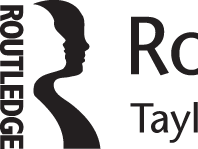
International university educators share top teaching tips
From personalised learning to making classes engaging, lecturers from around the world offer guidance on how to inspire student success

Lecturers should tailor their teaching to meet the learning needs of students, share problems and solutions with peers, and consider alternative forms of assessment to become better educators.
In an episode of the THE Campus podcast, sponsored by leading academic publisher Routledge, university lecturers from around the world were invited to share their teaching tips on everything from personalised learning to alternative assessments.
Routledge is one of the world’s leading academic publishers, publishing thousands of books and online products each year, serving instructors, scholars and professional communities worldwide. From advice on engaging your students to professional development tools, Routledge offers all the resources you need to elevate your career in teaching and academia.
Sara Custer, podcast host and Campus editor at Times Higher Education, said that in academic environments obsessed with research metrics and funding, teaching can be seen as a burden but was fundamental to student success.
David Dodick, a sessional lecturer at the University of California, Berkeley and the Ontario Institute for Studies in Education at the University of Toronto, said training on educational theory could help subject experts become better teachers.
“One of the biggest challenges I see is that many faculty are subject matter experts that struggle to engage their students,” Dodick said. “Perhaps this is because not all of them have training and education in teaching and educational theory. So, I think in cases like that, centres for teaching and learning on campus can be really helpful. I try to get to know my students the best I can and then tailor my instruction to their learning needs as much as possible.”
Sarah Ivory, senior lecturer in climate change and business strategy at the University of Edinburgh Business School, said personalising a student’s learning experience could create a “bond and sense of belonging”. She suggested playing music while students were walking into a lecture and inviting students to choose the music for the next class. She also stressed how using a student’s name – and remembering it – can build community and why sharing your own personal stories and experiences can empower students to do the same.
Layal Hakim, senior lecturer in mathematics at the University of Exeter, urged educators to “try to keep the atmosphere in the room alive”. “Speak with students and not at them. You can do this in so many ways: through your body language, the tone in your voice and even on the board or slides,” she said.
The top tip from Melanie Brown, manager of teaching excellence at the University of Adelaide, was “don’t go it alone”. She suggested using communities of practice with colleagues as “a great way to discuss shared challenges and collaborate on practical solutions”.
Jack Wang, associate professor in microbiology at the University of Queensland, said lecturers should not be preoccupied with being entertaining. “I think a better use of your time is to redirect your energy into uncovering why the subject matter is inherently interesting. Why is it worth the students’ time to know about this, even if it is the first and last time they hear about the topic?” he said.
Finding ways to teach away from the campus was the top tip from David Clarke, senior lecturer in the school of chemistry at the University of Edinburgh. “Teaching away from the campus is really about students having experiences engaging with real-world problems, which can be connected to their subject area, whatever that might be,” he said.
Jóna Guðrún Jónsdóttir and Rannveig Björk Þorkelsdóttir, from the University of Iceland, encouraged lecturers to implement diverse forms of assessment. “By using, for example, performative approach as an assessment, you give a range of students the opportunity to shine through creativity. Creativity is the ability to create something new using your imagination, your mind and your experiences,” said Björk Þorkelsdóttir.
Listen to the podcast here.
Visit the Routledge website to browse key titles in your area, and access free resources to help you enhance your teaching today.
In an exclusive offer to THE listeners – get 20% off* all orders using code ‘THE20’. Offer expires 29th November 2022.
*The discount is 20% off print and ebooks only. Discount code valid until 29th November 2022. Discount code cannot be used in conjunction with any other offer.


